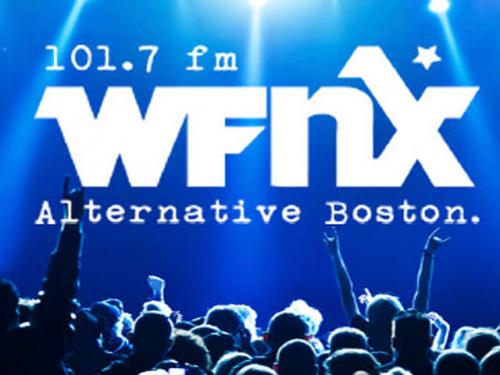During this blog’s hiatus a terrible thing happened: Boston’s Phoenix Media/Communications Group sold WFNX 101.7 FM to Clear Channel Communications, essentially killing another bastion of Boston rock.
Mood music:
[spotify:track:2SUqPdYx8dh1s1yjqeGszW]
It saddened me on many levels. Through Facebook I’m connected with some of the DJs, and I’ve enjoyed their posts, but I could see and feel their pain on that social networking site after the sale was announced. I was also reminded of how WFNX was there for me during many difficult times in the late 1980s and 1990s. I felt equally bad when WBCN met the same fate a few years ago.
Some will argue that these stations lost their way in recent years — and their points are valid. But that’s not the point. These stations are still living, breathing entities and should be treated as such. We humans often lose our way. Sometimes we stay lost until we’re forgotten or we turn up dead. Other times we find our way again and people love us all the more for it.
For the latter reason, this post is no eulogy. It’s about things in life going away and coming back, always different but usually better.
The signs of life after FNX are already evident. Sunday, the day The Boston Globe ran an article about FNX and the precarious state of Boston rock radio, DJ Julie Kramer announced on Facebook that she was engaged. Her job at FNX may be over, but her life goes on. You can’t keep the strong ones down.
Meanwhile, a petition drive to save FNX is gaining steam, and there’s always the opportunity to bring the station back via the Internet. BCN has been reborn online, though the message hasn’t gotten through to enough listeners to call it a success story yet.
Much of my music listening has shifted to the Internet. I like Pandora, though I like Spotify a lot better because I’m able to find most of my favorite albums there. One could argue these newer choices are what’s killing traditional rock radio, but I think we’re simply in the middle of a transitional period. As terrible as it is to see revered radio stations die, the story has a long way to go. In the years to come, I think we’ll see a more complete marriage between traditional radio and the Internet. We’re merely traveling through the fog right now, lost and disoriented. It sucks, but the fog always burns away eventually.
Saturday Erin and I went to a charity concert that was teeming with mourning FNX fans. My friends Pop Gun opened the show and did a blistering, satisfying set. They were followed by New Wave legends The Psychedelic Furs. The latter band was never my cup of tea, but I enjoyed them and was amazed that I knew as many of their songs as I did. They can thank FNX for that. People still hunger for alternative rock in this town. FNX’s sale leaves a vacuum, and we know by now that nature never allows a vacuum to go unfilled. Who better to fill it than the former DJs of WFX?
The possibilities are endless. And even if FNX doesn’t come back, the station will always live on in our memories. Allow me to share some of mine.
As a kid from Revere with a boulder-sized chip on my shoulder, I turned to heavy metal to sooth me after my brother’s death, family rancor and too many Crohn’s Disease flare-ups to count. In the 1980s, a good Boston metal station was hard to come by. There was WAAF, but their DJs were always too juvenile for my tastes. I loved BCN, but they never played enough of the heavy stuff to keep me satisfied.
I turned to WFNX not because it was playing metal. It wasn’t, obviously. I gave them a try because my late friend Sean Marley was a fan and back then I copied everything he did. In doing so, my musical horizons were broadened in wonderful ways. I discovered bands like The Ramones, REM (I don’t listen to REM these days, but I liked them back then), The Pixies and Nirvana and DJs like Kramer, Angie C. and Duane Bruce, who could play kick-ass music and conduct themselves with class instead of going for the shock value. In the first years of my relationship with Erin, we both enjoyed FNX. And when Sean Marley died, I turned to FNX for the comfort of bands like Weezer.
In more recent years the metalhead in me has re-asserted itself, but I’ve continued to love the bands FNX introduced me to. I’ve also come to enjoy the Facebook presence of its current and former DJs.
Clear Channel can never take that from me. And it can’t kill a powerful musical movement as long as there are people around to pluck the torch from the ground and re-ignite it.


RadioBDC has been stellar so far and keeps getting better.